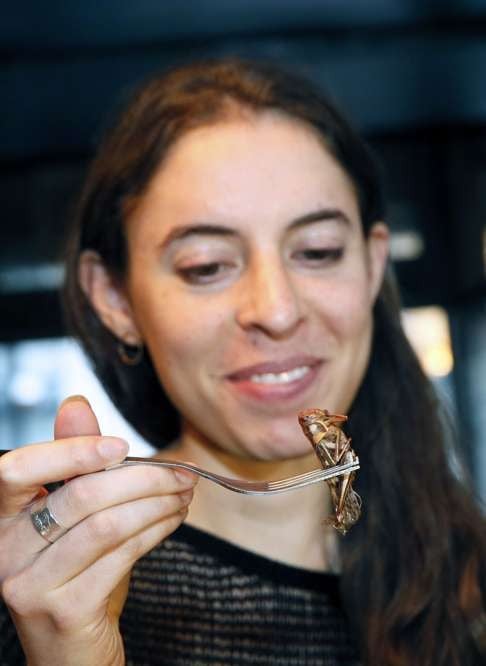
How other countries handle food sustainability: lessons for Hong Kong in RTHK series
Five-part television series starting today considers how the world will feed a population of 9 billion, how to reduce food waste, and how to grow more of our own food, even when we live in a city
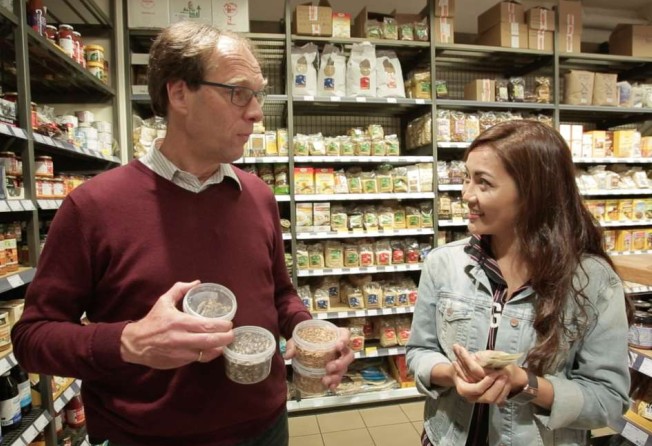
Food sustainability is a huge issue in Hong Kong, since over 90 per cent of the city’s food is imported. With incresing numbers of people growing their own food and farmers producing organic crops, it is an issue that is garnering more attention as people grow curious about where their food comes from and wonder what alternative sources there are.
Radio Television Hong Kong will explore the topic in a five-episode television series called Exploring the Edible Planet, which begins on Monday July 25. The series looks at how different countries are dealing with food sustainability.
The idea for the series came to producer Simon Li Kin-man after he read a report by the United Nations Food and Agriculture Organisation in 2013. It said the world’s population would reach 9 billion by 2050 and there would not be enough food to feed them all. Among its conclusions? People need to think about the inevitability of eating insects for nutrition.
The report got him thinking about how other countries manage food sustainability and find alternative sources of food, and what Hong Kong could learn from them.
After some research, Li enlisted actress and radio host Kannie Chung to go with him to the United States, Germany, Singapore and Kenya as programme host. She didn’t hesitate, even though she would have to eat insects on camera in the first episode.

“It looks scary at first, but then I saw people around me eating it too so I thought I’d just try some. I had a quiche that had some worms in it and they tasted like hard boiled egg yolks,” Chung says.
She also tries insects mixed in a salad. It tastes crunchy, much like eating prawns with their shells on.
I had a quiche that had some worms in it and they tasted like hard boiled egg yolks
In the same episode, Chung meets the authors of the study that Li read, professors Arnold van Huis and Marcel Dicke, who are entomologists at Wageningen University in the Netherlands. For the past 20 years they have been trying to convince people to eat insects as a good source of protein, because traditional animal protein like beef will not be sufficient to feed the world’s growing population.
Another episode sees Chung go to Portugal, where she discovers the European Union’s food standards are so high that some 50 per cent of perfectly edible food is dumped. She meets people who try to rescue ugly-looking fruit, and persuade people to eat them.
In Berlin she meets Raphael Fellmer, the godfather of food sharing. With consumers throwing away 40 per cent of the food they buy, Li explains the system Fellmer has set up to train people in food hygiene, how to spot food that is still good to eat, and how to tell people elsewhere in Germany about their efforts to collect usable food that’s been thrown away.
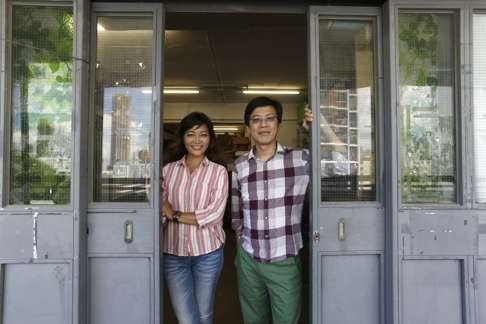
“People set up a communal refrigerator in garages and people can post pictures of food they have donated,” Li explains. From there a qualified person collects all the food to take to a central point to redistribute. Others who have accreditation can visit bakeries and supermarkets to collect food from these places.
“They are trained to determine if the food is still good or not. Also they are not responsible if someone gets sick later from eating the food, because it might have changed during transport or how they prepared the food,” Li says.
“How come we don’t have food sharing in Hong Kong? Is it because of our education or culture?” he asks.
In Kenya, west Africa, the RTHK team learn about indigenous food.
Li compares Kenya’s situation to that of Hong Kong. “Kenya was also colonised by the British [from 1920 to 1963], and when they became independent, they realised they had a problem. They had planted crops like coffee and corn to export, but not for their own consumption and so they wondered what kinds of crops they should be planting based on the soil of the land,” says Li.
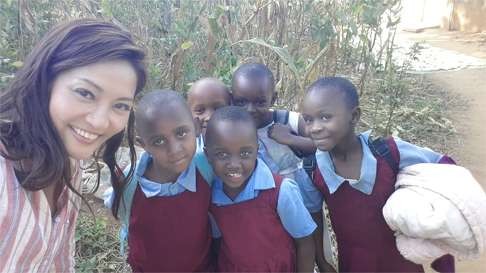
Chung speaks to ethnobotanist Patrick Maundu, who discovered 200 kinds of vegetables that were previously grown in Kenya and who was recognised by the UN for his research.
She says the younger generation has forgotten what crops are indigenous and think that kind of food is too rustic. However, after she samples some indigenous fruit and vegetables, she observed her body functions better than before.
Back in Hong Kong she and Li track down indigenous crops in the New Territories, including Hok Tau bak choy, named after the village of Hok Tau Wai that was known for growing the sweet-tasting vegetables.
They also went to Bath, in the American state of Illinois, to find out how Americans are dealing with the Asian carp, which is an invasive species there. The authorities are encouraging fishermen to catch them and eat them, but they don’t please the American palate; locals say the fish have a muddy taste and there are lots of small bones to be aware of when eating them. The solution? Export them to China, where the people, Li jokes, eat everything.
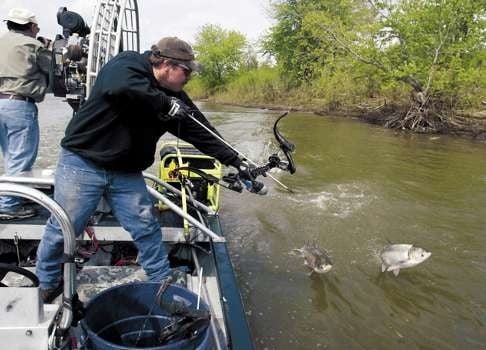
For the final episode, the film crew visit Singapore, where they learn about rooftop gardens that are used to grow food.
“They have a different mindset to us. They import a lot of food too, but they try not to be too reliant on other countries to feed them,” says Chung. “We went to shopping malls where they give farmers space to set up urban farms, like lettuce grown by hydroponics and even edible flowers. Not only are they fresher, but cheaper too. It makes us think about what we eat and how we live.”
We waste a lot of food, mostly because we can get it so easily
Their on-the-ground research around the world has changed the way they see Hong Kong and food.
Chung has since become an avid green thumb, collecting seeds of fruit and vegetables she has eaten and trying to grow them on a plot of land her family has in the New Territories.
“We waste a lot of food, mostly because we can get it so easily,” Li observes. “Nowadays when my wife and I go to a restaurant and have some leftover [water] in our glasses, my wife will pour it into our water container to take home.”
Exploring the Edible Planet will be broadcast July 25, August 1, August 15, September 5 and September 12 at 8.30pm on RTHK channels 31 and 31A, and on the same day at 11pm on Cable TV channel 10.